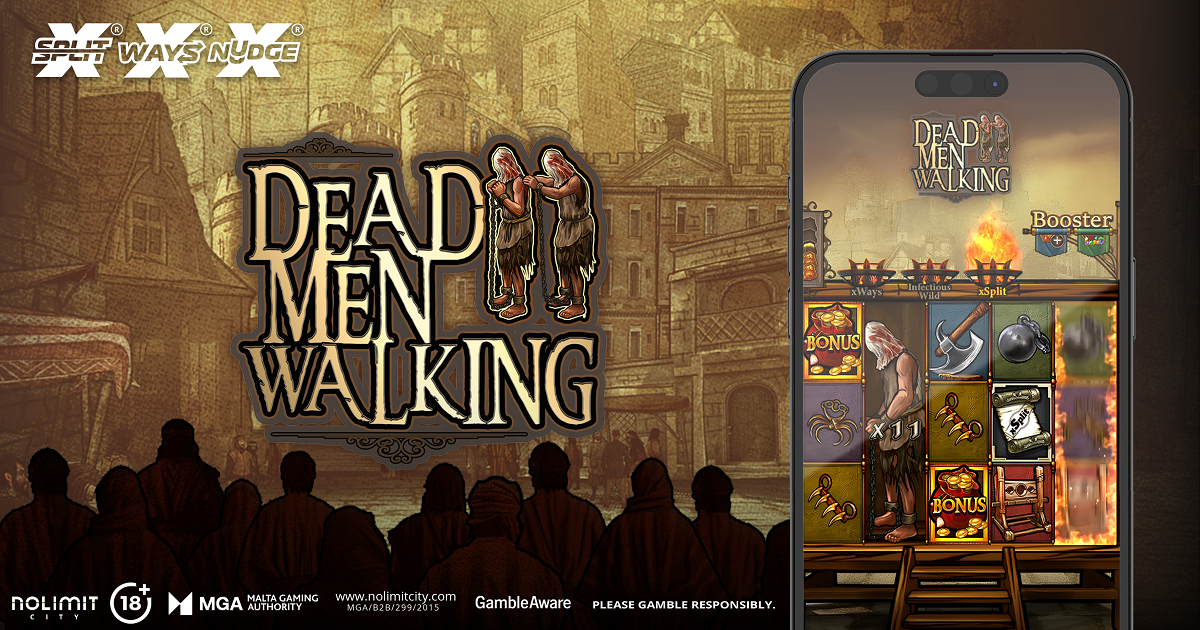

Latest News
New Study Shows People from Poor UK Areas More Likely to be High-risk Online Gamblers
According to a new study conducted by the researchers of the University of Liverpool and the National Centre for Social Research, people in deprived areas are more likely to use online casinos and place risky long-odds bets.
The study also found that gambling firms make the vast majority of their money from the 5% of accounts that rack up the biggest losses. The firms make at least 70% of their revenues from the biggest losers.
In sports betting, that proportion rises to 86%, with people in deprived areas more likely to go for longer-odds wagers with a lower prospect of success.
Nine out of ten online casino accounts either won money or lost less than £500 over the course of a year, but 164,000 lost more than £500 during a single session of play, and 47,000 people lost more than £5000 in a year.
This group was disproportionately likely to come from deprived areas and to have lost their money on virtual slot machines, which carry a higher rate of addiction than most other gambling products.
Slots accounted for more than half of losses above £5000 and 70% of sessions where someone played for three hours without a break.
“This all reaffirms my thoughts that those most vulnerable are groomed and exploited by an industry entirely motivated by profit,” said the Labour MP Carolyn Harris, who chairs a cross-party group advocating gambling reform.
“We saw it with the clustering of bookies in deprived areas, when the FOBTs were a huge money-maker,” she said. “We are seeing it now with online. How can we trust this industry to self-regulate when they have repeatedly shown themselves to be predatory and merciless in their pursuit of profit?”
“This confirms what we have known for a long time, that the vast majority of online gambling profits are coming from people losing more than they can afford. Affordability checks introduced for losses equivalent to £100 a month would apply to fewer than 5% of gamblers,” Matt Zarb-Cousin of the Campaign for Fairer Gambling said.
The Betting & Gaming Council said gambling firms had improved controls since the study was undertaken. “There is growing evidence that recent improvements in standards are now starting to have an impact,” it said.
Compliance Updates
California Gambling Control Commission Reviews Licensing and Ownership Transfers at September 18 Meeting

The California Gambling Control Commission (CGCC) convened for its scheduled public meeting to deliberate on a wide range of licensing and regulatory matters related to cardrooms, third-party providers, tribal gaming, and key individuals in the gambling industry. The Commission addressed ownership transfers, license renewals, regulatory compliance, and findings of suitability for tribal gaming employees and suppliers.
Highlights from the Meeting
Cardroom Licensing and Ownership Transfers
Commerce Casino (California Commerce Club, Inc.)
- Initial License Approval: The Commission recommended approving an initial cardroom owner license for James Murray, Director of the Commerce Casino, through March 31, 2027.
- Ownership Transfer: The Commission approved a share transfer from Marsha Gold to the Marsha L. Gold Revocable Trust, subject to the transaction closing within 180 days and written confirmation of compliance with imposed conditions.
- Successor Trustee Licensing: The license for Jill Anter Wieder, Successor Trustee of the trust, was also approved through March 31, 2027, pending the completion of the ownership transaction.
- Additional Conditions: The Commission imposed a detailed list of conditions on the license, including certification requirements, written transaction confirmations, and mandatory legends on stock certificates to ensure regulatory compliance.
Napa Valley Casino (BVK Gaming, Inc.)
- Ownership Transfer: Similar to Commerce, the transfer of shares from Von Altizer to the Von Altizer 2017 Revocable Trust was conditionally approved.
- Successor Trustee Licensing: Applications from Christopher and Bobby Huang, successor trustees and contingent beneficiaries, were approved through May 31, 2026, contingent upon the transaction’s completion.
- Interim License Conditions: The Commission imposed a set of conditions mirroring those required for Commerce Casino, ensuring the integrity of ownership transitions.
Renewal and Interim Licenses
Seven Mile Casino (Stones South Bay Corp.)
-
A new interim renewal license was approved through September 30, 2027, with prior licensing conditions officially removed.
Commerce Casino Directors
- Rick Contrucci: The Commission opted to abandon the renewal application.
- Lysa Grigorian: The application was referred to an evidentiary hearing, and an interim license was issued through March 31, 2027.
Other Cardrooms
- Limelight Card Room: License renewed through March 31, 2027.
- Lucky Chances Casino: A 90-day extension was granted through December 31, 2025, with strict restrictions on property access and communications for Rene Medina, tied to a 36-month probationary period.
- North Coast Casino and The River Card Room: Both granted 60-day extensions with multiple compliance conditions required prior to opening or continuing operations.
Third-Party Proposition Player Services
Renewals and Initial Licenses Approved
- Owner-Type Licenses for Global Player Services and Players Edge Services were renewed through 2027.
- Employee-Type Licenses: Dozens of third-party proposition player service employees were approved or renewed, including workers from Knighted Ventures, Blackstone Gaming, and Acme Player Services.
- Conditions on some licensees, such as Glenn Kaboua, included proof of fine resolution every 90 days.
Tribal-State Compact Licensing
Gaming Resource Suppliers
-
Everi Games Inc. and LNW Gaming, Inc. received approval for initial and renewal suitability findings, with licenses valid through early 2026.
Key Tribal Employee Licensing
-
A significant number of tribal casino employees across the state received initial or renewed findings of suitability. These included employees from:
-
Chumash Casino Resort
-
Thunder Valley Casino Resort
-
Fantasy Springs Resort Casino
-
Graton Resort & Casino
-
Hard Rock Hotel & Casino Sacramento, among many others.
-
-
The Commission emphasized continuous monitoring of suitability, especially for applicants under conditional approval like Tatianna Wren, who must provide quarterly updates on efforts to resolve outstanding fines.
Key Individual Decisions
-
Huy Dang: The Commission approved the renewal of Dang’s Key Employee License through September 30, 2027, removing prior conditions related to court-mandated classes and debt resolution.
Consent Calendar Items
-
Items 15 through 21 included approvals for initial and renewal licenses for various employees, work permits, and tribal key employees. All items were approved per staff recommendations.
Conclusion
The September 18, 2025, meeting of the California Gambling Control Commission underscored the Commission’s ongoing role in maintaining transparency, accountability, and integrity in the state’s gambling industry. With careful review of ownership changes, key personnel, and operational compliance, the CGCC continues its commitment to fair and responsible gambling practices in California.
For full details and future updates, visit the California Gambling Control Commission website
The post California Gambling Control Commission Reviews Licensing and Ownership Transfers at September 18 Meeting appeared first on Gaming and Gambling Industry in the Americas.
Latest News
Groove Technologies and BetOnGames Forge Strategic Partnership

In a landmark move, platform and aggregator Groove Technologies has announced a strategic partnership with BetOnGames, the RNG game provider arm of BETCORE. This collaboration brings together Groove’s enterprise-grade platform, boasting over 15,000 games from 150+ top-tier providers, and BetOnGames’ lightweight, high-performing content, optimised for real-world conditions.
The alliance promises to deliver unparalleled scalability, engagement, and profitability for operators worldwide.
Groove’s cutting-edge platform is renowned for its precision, scalability, and advanced player engagement tools, making it a powerhouse for operators who demand excellence. By integrating BetOnGames’ portfolio featuring 100+ fast-loading, low-data titles across slots, crash, and instant-win formats, Groove further solidifies its position as the go-to solution for diverse markets, including regions with limited internet coverage.
Rachel Tourgeman, Head of Partnerships at Groove, emphasised the strategic value of the partnership: “BetOnGames’ adaptability and high-converting content perfectly complement Groove’s mission to deliver unmatched performance for operators. Their lightweight design, multilingual UI, and seamless payment integrations, including UPI, QR-wallets, and crypto, make them an ideal partner for both emerging and mature markets. Together, we’re setting a new standard for player engagement and operational efficiency.”
BetOnGames has built a reputation for reliability, offering RNG-certified titles with competitive RTPs (96–97%) and 24/7 technical support. Popular titles like Aerobet (crash-style, 97% RTP), 100 Mega Hot (classic slot, 97.12% RTP), and Bicho da Sorte 25 (lottery-style, 92.26% RTP) cater to a broad spectrum of player preferences, ensuring high retention and conversion rates.
Peter Korpusenko, CEO of BETCORE, highlighted the significance of the collaboration: “Partnering with Groove allows us to expand our reach exponentially while maintaining the speed, fairness, and lightweight efficiency that define BetOnGames. Groove’s robust backend and analytics tools empower operators to maximise our content’s potential, driving growth in even the most competitive markets.”
With full licensing under the Curaçao Gaming Control Board, integrated responsible gaming tools, and AML compliance, BetOnGames provides a secure and scalable foundation for operators. Combined with Groove’s industry-leading platform, the partnership ensures seamless onboarding via Groove’s single-API, optimised cash flow, and data-driven decision-making.
As iGaming continues to evolve, Groove and BetOnGames are poised to lead the charge, delivering a dynamic, player-centric experience that transcends borders and technical barriers. For operators seeking a competitive edge, this collaboration represents the future of iGaming today.
Yahale Meltzer, Co-Founder and COO at Groove, underscored the long-term vision: “This partnership isn’t just about adding games, it’s about enhancing ecosystems. BetOnGames’ performance in low-bandwidth environments and localised payment options align perfectly with our commitment to inclusivity and innovation. Together, we’re not just meeting operator needs; we’re anticipating them.”
The post Groove Technologies and BetOnGames Forge Strategic Partnership appeared first on European Gaming Industry News.
Latest News
Week 37/2025 slot games releases

Here are this weeks latest slots releases compiled by European Gaming
Leroy wakes up every day with a smile on his face! Why you may ask? Well executing is a dirty job but Leroy just loves to swing his axe in Nolimit City’s latest release, Dead Men Walking. The chopping block features a 3-3-3-3-3reel setup with three Fire Pits above the reels each linked to a unique base game feature.

Amusnet has released 100 Art of Gold. This new online casino release brings together the elegance of art and the dynamic feel of modern slot design. Built on a 5-reel layout with 100 fixed paylines, the game stands out with its refined aesthetic and carefully crafted details.

Play’n GO heads skyward with Rosy Orbit Treasure Turn™, a radiant slot where gravity is optional and innovation is key. A mysterious princess, a faithful fox, and a cherished rose – Play’n GO blends character-driven charm and fresh mechanics in Rosy Orbit Treasure Turn™.

Burning Classics 2 is here to ignite your winnings with all the fiery thrills of the original, plus even hotter rewards. The sequel to Booming Games’ most popular game, Burning Classics, keeps the classic 5×3 grid and 20 variable paylines, along with the iconic stacked symbols, including stacked wilds.

Blueprint Gaming™ takes one of its strongest internationally performing series to new heights in Cash Strike Hotstepper 2, with Super Strike and mystery symbols among the new additions designed to elevate the gameplay experience on offer.

BGaming is excited to announce the launch of Bonanza Trillion, the highly anticipated sequel to the hit slot, Bonanza Billion. The game builds on the success of its predecessor while also upping the ante with a range of captivating features, enhanced visuals, and higher volatility. Bonanza Trillion upgrades the classic fruit and crystal theme that players loved from the original title.

Step into the heart of the untamed frontier in Bison Moon – Power Combo, a slot from Northern Lights Gaming that captures the rugged beauty and boundless thrill of the Great Plains with plenty of big wins in store. This action-packed slot introduces the provider’s latest mechanic, Power Combo, where three unique Scatters unlock incredible bonus features via its proprietary Link&Win feature.

The vast plains are alive with the sound of rampant hooves, the roar of predators, and helpful animals along the way. ELA Games proudly presents its latest release, Buffalo Force, an energetic game that celebrates the sheer power of nature.

Spinomenal is welcoming players to ascend to Valhalla with its latest mythology-inspired slot, Majestic Odin. The game joins Spinomenal’s hugely popular Demi Gods series. Majestic Odin is set against a breathtaking Nordic landscape of towering mountains, deep fjords, and glowing torches that frame the game with mythic grandeur.

The post Week 37/2025 slot games releases appeared first on European Gaming Industry News.
-

 gaming3 years ago
gaming3 years agoODIN by 4Players: Immersive, state-of-the-art in-game audio launches into the next generation of gaming
-
EEG iGaming Directory9 years ago
iSoftBet continues to grow with new release Forest Mania
-
News8 years ago
Softbroke collaborates with Asia Live Tech for the expansion of the service line in the igaming market
-
News7 years ago
Super Bowl LIII: NFL Fans Can Bet on the #1 Sportsbook Review Site Betting-Super-Bowl.com, Providing Free Unbiased and Trusted News, Picks and Predictions
-
iGaming Industry8 years ago
Rick Meitzler appointed to the Indian Gaming Magazine Advisory Board for 2018
-
News7 years ago
REVEALED: Top eSports players set to earn $3.2 million in 2019
-
iGaming Industry8 years ago
French Senator raises Loot Boxes to France’s Gambling Regulator
-
News7 years ago
Exclusive Interview with Miklos Handa (Founder of the email marketing solutions, “MailMike.net”), speaker at Vienna International Gaming Expo 2018







